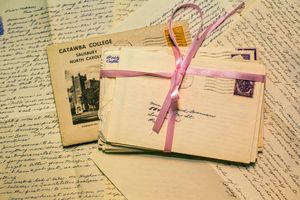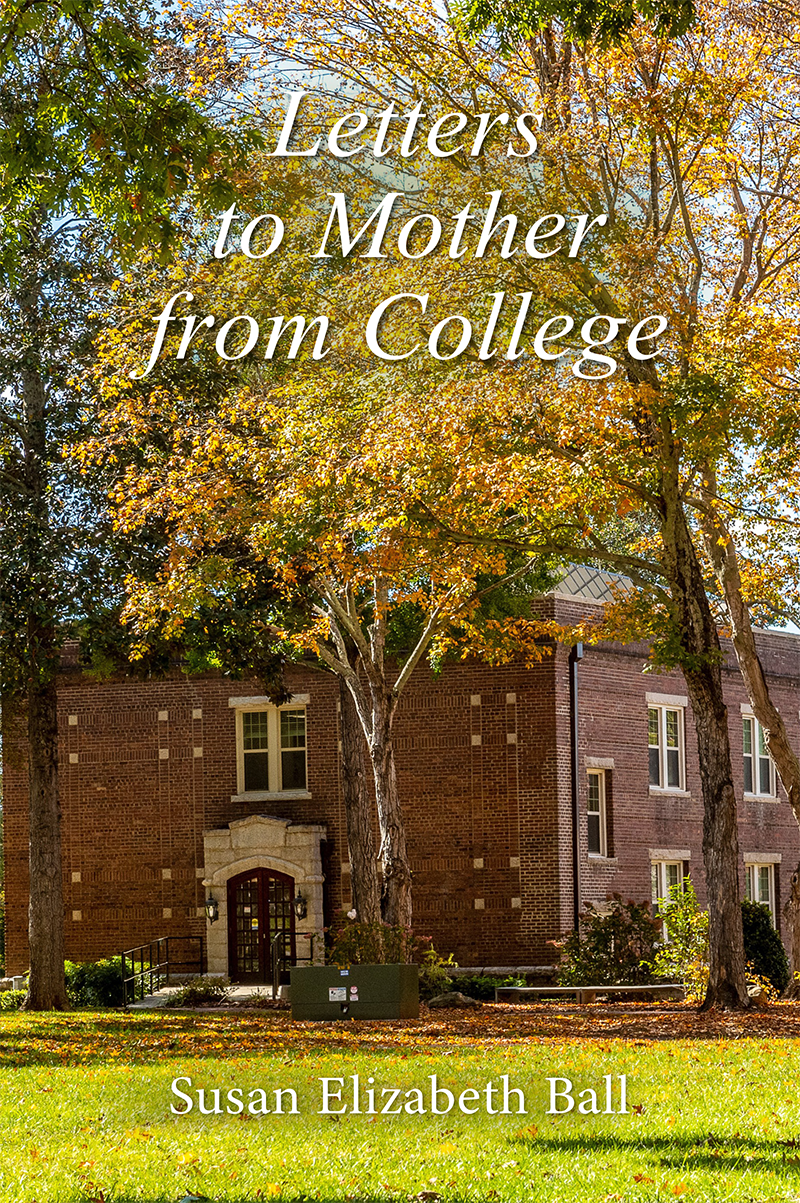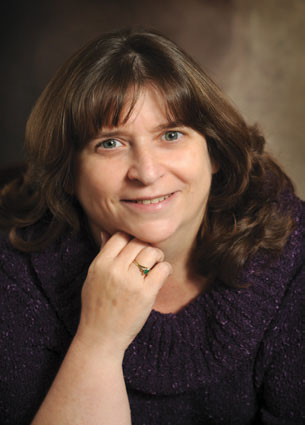
It started as a way to share the story that she discovered in her mother’s letters with her sisters, Susan says. Her mother, Polly Boaman Whitman, had passed away; and although her mother had said she could, Susan did not read the stacks of letters while her mother was still living, explaining “It felt invasive.” Once she began reading them, she was intrigued with the story those letters revealed of her mother’s life as a student at Catawba College. In the epistles that Polly sent home to her mother, Susan’s grandmother, Susan learned about Polly’s trials and triumphs in her classes, athletic endeavors, campus dining and even what dating was like in the 1950s. She had heard stories growing up from her mother and father about how they met - at Catawba College- and her mother’s letters gave a vivid setting and vibrant texture to those stories.
Letters in that era were the chief form of contact with anyone who did not live nearby. Long-distance calls were expensive to make– this was long before “unlimited” plans of any kind – and people often did not have their own phone line. Party lines, a phone line shared by several families, were common. Fans of the television show “Andy Griffith” will recall the show’s references to telephone usage of the “party line”. For a dormitory, there would be one telephone shared by all students in the dorm or at least all of the students on one floor. To keep in touch, students routinely wrote letters to their parents, other relatives, and friends, often as a Sunday evening study break.
Polly came to Catawba from Pennsylvania, choosing Catawba because she knew about it from her aunts who attended a retreat on the campus and from a friend who went there. Catawba also appealed to her because she could be a residential student, and if she stayed at home and attended a college nearby which she was considering her mother insisted that she live at home and travel back and forth to campus.

The book features the text of the actual letters, with the additional narrative woven by Susan holding them artfully together and fully developing the story. Susan made some minor alterations to the exact wording of a letter in some cases, taking out a sentence such as “I’m sorry to hear Joe died,” when there was no further explanation about it, and Susan had no idea who Joe was.
She also altered the names of the Catawba professors from those referenced in her mother’s letters, since, as any student can be, Polly was challenged and at times vexed by some of them, while being fond of others. Susan also tweaked the spelling of her mother’s maiden name in the book, while leaving the pronunciation the same. Part of that decision ties into Susan’s development of the additional theme of Polly’s struggles with family, faith, and forgiveness through mentions in the letters and from Susan’s own personal family knowledge.
Given the number of letters that Polly wrote home over her years as a student, “Letters to Mother from College” is the first book in a series. It tells the story of Polly’s first two years at Catawba and her introduction to a local young man and fellow student who would become her future husband and Susan’s father. Susan has already outlined what the next books will cover as the saga unfolds from the letters, including her parents’ marriage and Polly’s life as a married student, her eventual departure from Catawba and subsequent return to finish her degree with four preschoolers in tow while her husband served overseas in the Marine Corps. Understandably, at that point Polly’s letters to her mother became less frequent.
Susan’s father would retire after a twenty-six-year career in the Marines and would go on to become a professor at a small college. Susan believes that in becoming a college faculty member, he remembered his own positive experience as a student at Catawba College and he sought to create that for his own students.

As a fun and unexpected bonus to the storyline, Susan included several tried-and-true family recipes for some of Polly’s favorite foods, such as “funny cake”. Some of the foods were in the care packages Polly received from back home in Pennsylvania, which she shared with her very appreciative dorm mates. Photos of Catawba from postcards that Polly’s aunts had mailed home from their visit also intersperse the book.
Members of the Catawba community, whether alumni, faculty, staff or current students, will recognize commonalities that still are part of college life today, while learning of student experiences that differ greatly from now (Dressing up each evening to eat in the dining hall, anyone?). It is a snapshot of an era at Catawba College and in Salisbury. Polly’s adventures continue in the second book, which Susan is planning for publication by early summer, with a couple more to follow.
